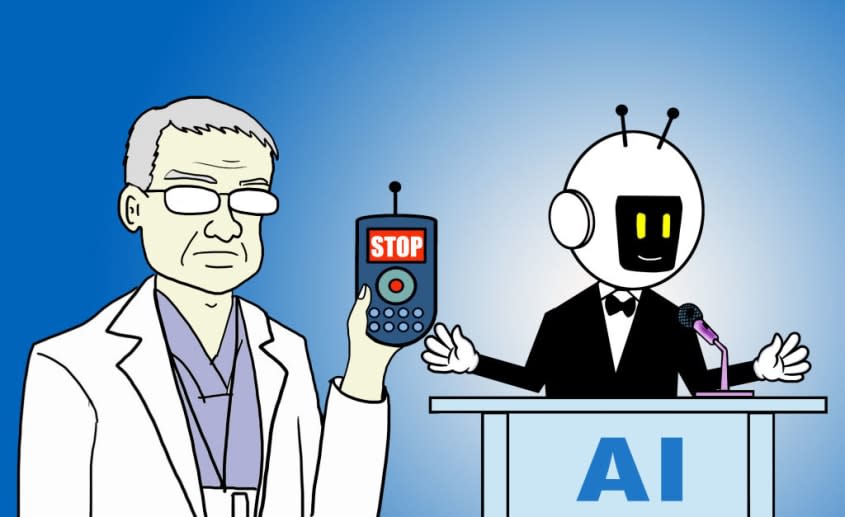AI can now read your mind, researchers report as the 'godfather of AI' quits to warn about his life's work

Researchers at the University of Texas at Austin reported in the journal Nature Neuroscience on Monday that they were able to use artificial intelligence to translate a person's brain patterns into language — essentially, to read their mind. Separately on Monday, Canadian-British researcher Geoffrey Hinton, often called the "godfather of AI" for his pioneering work on neural networks, said he retired from Google last week in part so he could freely join the growing chorus of AI researchers warning about the dangers to humanity posed by their life's work.
Hinton, 75, has been fascinated by neural networks, a mathematical system that can learn skills by analyzing data, since the 1970s. He and two of his graduate students at the University of Toronto, Ilya Sutskever and Alex Krishevsky, created a neural network in 2012. Their work formed the foundation for OpenAI's ChatGPT, Google's Bard, and other AI chatbots that learn from analyzing massive amounts of digital text, then reconstitute that knowledge on command into natural language. Sutskever is OpenAI's chief technology officer.
The UT Austin researchers used a GPT-like large language AI model to translate brain patterns captured in fMRI scans into text that essentially paraphrased what the person was thinking, The New York Times reports. Very basically, explained Osaka University neuroscientist Shinji Nishimoto, who was not involved in the research, "brain activity is a kind of encrypted signal, and language models provide ways to decipher it."
Hinton used to think generative AI systems were inferior to the human brain, but "maybe what is going on in these systems," he told the Times, "is actually a lot better than what is going on in the brain."
"The idea that this stuff could actually get smarter than people — a few people believed that," Hinton told the Times. "But most people thought it was way off. And I thought it was way off. I thought it was 30 to 50 years or even longer away. Obviously, I no longer think that." The "kind of intelligence we're developing is very different from the intelligence we have," he told BBC News. Unlike biological systems, digital systems are made up of many similar copies that "can learn separately but share their knowledge instantly. So it's as if you had 10,000 people and whenever one person learned something, everybody automatically knew it."
Google, which employed Hinton for a decade, "has acted very responsibly" and been a "proper steward" for AI technology, but it now has to compete with Microsoft's Bing and other companies in a sort of global AI arms race, he told the Times. "I console myself with the normal excuse: If I hadn't done it, somebody else would have."
You may also like
Stanley Tucci reflects on his 'terrifying' oral cancer battle

